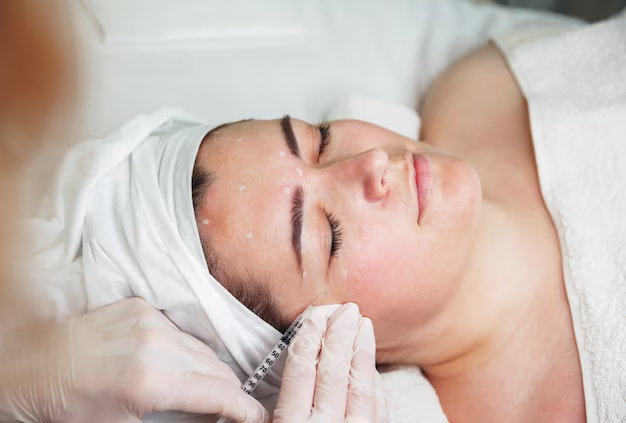Erase the Marks: Comprehensive Guide on How to Treat Acne Scars
Acne scars can often feel like the unwanted souvenirs of past breakouts, sticking around long after the initial inflammation has disappeared. Beyond affecting one's appearance, they can take a toll on self-esteem and confidence. Fortunately, understanding how to minimize or even erase these scars can be empowering. Let’s dive into the various ways you can treat acne scars effectively.
Understanding Acne Scars
Before jumping into treatments, it’s important to understand why acne scars form. Scars are a result of the body trying to repair skin damage from severe acne lesions. During the healing process, the body produces collagen. If there is too little or too much collagen produced, a scar can form. These scars can be grouped into atrophic scars (dents in the skin) and hypertrophic scars (raised areas). Targeting the type of scar is crucial for effective treatment.
Types of Acne Scars
- Ice Pick Scars: Deep, narrow scars that look like small holes.
- Boxcar Scars: Broad, box-like depressions with steep vertical sides.
- Rolling Scars: Broad depressions with a sloping edge.
- Hypertrophic and Keloid Scars: Raised and bumpy areas caused by excess collagen.
Common Treatments for Acne Scars
Topical Treatments
Topical treatments can be an accessible option for many looking to improve their acne scars. These can include:
- Retinoids: Known for promoting cell turnover and helping fade discoloration.
- Alpha Hydroxy Acids (AHAs): Help slough off dead skin cells, revealing smoother skin underneath.
- Salicylic Acid: Clears pores, reduces swelling and redness, and exfoliates the skin.
- Vitamin C Serums: These can help reduce hyperpigmentation and brighten the skin.
Pro Tip: Always perform a patch test to ensure you don’t have an adverse reaction to any new topical treatment.
Professional Procedures
While topical treatments may work wonders for certain scars, professional procedures often provide more dramatic results. Some common dermatological options include:
Chemical Peels
Chemical peels involve applying an acid solution to remove the outer layers of skin. They can help in reducing deeper scars and evening out discoloration.
Microneedling
Microneedling uses small needles to create micro-injuries in the skin, promoting collagen production and skin regeneration. This treatment is particularly effective for rolling scars.
Laser Therapy
Laser therapy resurfaces the skin, reducing scar thickness and promoting new skin growth. There are ablative and non-ablative lasers available, each catering to different depth and scar types.
Dermal Fillers
Dermal fillers can temporarily raise depressed scars to the level of the surrounding skin, offering immediate improvement.
Home Remedies: Do They Work?
For those interested in natural and cost-effective solutions, a few home remedies might offer relief, albeit with more subtle results compared to professional treatments. Here are some popular options:
- Aloe Vera: Known for its soothing properties, aloe vera can help reduce inflammation.
- Honey: With natural antibacterial properties, honey can aid in wound healing and post-inflammatory hyperpigmentation.
- Coconut Oil: Moisturizes and may promote healing, but should be used cautiously on acne-prone skin due to its potential to clog pores.
Remember: Natural remedies can take time, and efficacy varies among individuals.
Lifestyle Changes and Habits to Improve Skin Health
Beyond treatments, lifestyle plays a significant role in the appearance of acne scars. Focus on:
- Diet: A diet rich in antioxidants, vitamins, and minerals supports skin health, while excessive sugar and junk food may exacerbate acne.
- Hydration: Drinking plenty of water aids in skin elasticity and healing.
- Sun Protection: UV exposure can darken scars, so sunscreen is crucial.
Embracing Your Skin: The Emotional Aspect
Dealing with acne scars can feel frustrating, but it’s important to remember that everyone’s skin journey is unique. Embrace your skin’s history and celebrate improvements, big or small. Scar treatment isn’t about achieving perfection but focusing on what makes you feel more confident and comfortable in your skin.
A Balanced Wrinkle-Free Finish
Choosing the right treatment depends on several factors including scar type, skin type, and personal preference. Consulting a dermatologist can provide tailored advice and information about suitable treatments. Recognizing that improvement takes time and persistence is key to managing expectations and embracing progress.
Practical Summary to Treat Acne Scars 📝
- Identify Your Scar Type 🎯: Consult with a dermatologist to determine specific treatments for atrophic vs. hypertrophic scars.
- Explore Topical Treatments 💧: Retinoids, AHAs, and vitamin C serums can improve skin texture and discoloration.
- Consider Professional Procedures 🛠️: Chemical peels, microneedling, and laser therapy offer more pronounced results.
- Try Natural Remedies 🌿: Aloe vera and honey might provide soothing benefits with consistent use.
- Focus on Lifestyle 🥗: Adopt a balanced diet, stay hydrated, and protect your skin from the sun.
- Seek Professional Guidance 🩺: Dermatologists can craft personalized treatment plans.
- Practice Patience and Self-Love ❤️: Skin healing takes time; celebrate small victories along the way.
Choosing the path to treating acne scars is a personal decision shaped by the unique needs of your skin and your goals. With patience, appropriate treatments, and a touch of self-love, a smoother complexion is within reach.

